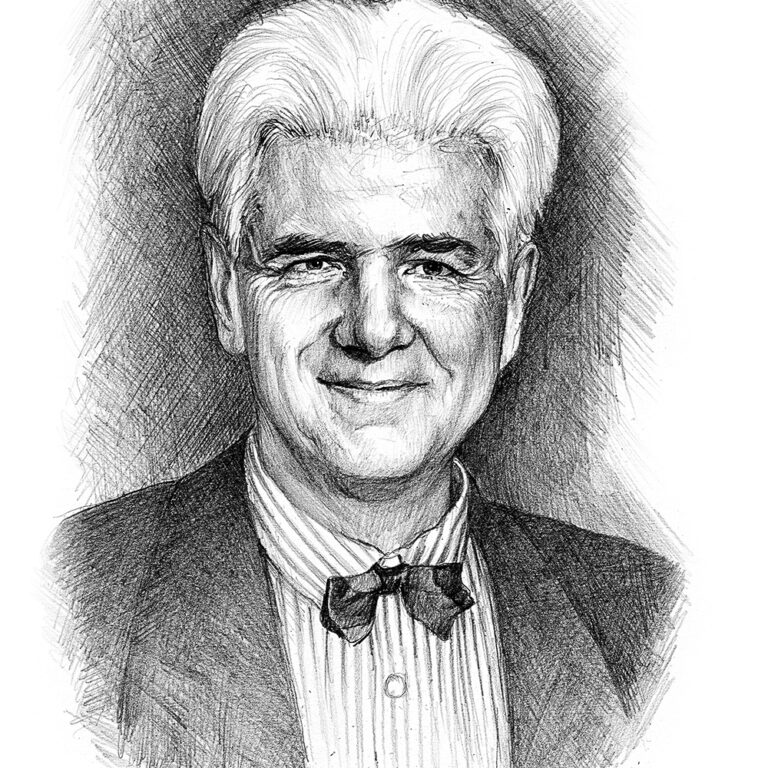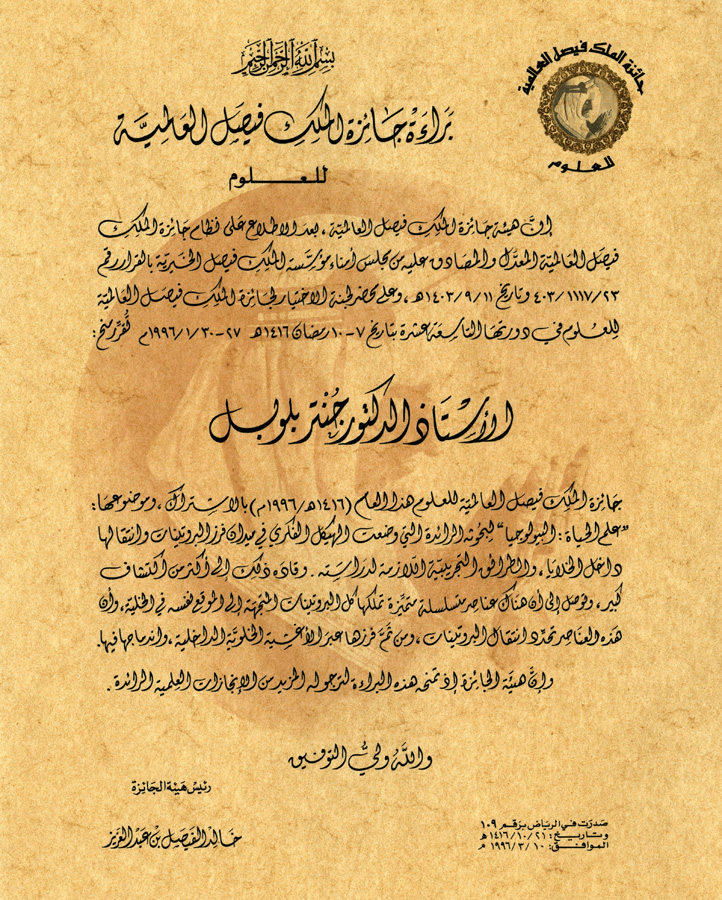

Professor Gunter Blobel
King Faisal Prize in Science 1996 Laureate
Topic: "Biology "
Scientists today resemble their Muslim predecessors in being true international citizens of the world

Günter Blobel studied in Frankfurt and Munich and obtained his MD from the University of Tubingen before moving to the United States, where he obtained his Ph.D. in Oncology from the University of Wisconsin in 1967. A naturalized U.S. citizen, Blobel had been working since the 1960’s at Rockefeller University and was the John D. Rockefeller Jr. Professor of Cell Biology as well as an investigator at the Howard Hughes Medical Institute in New York. He also served on the board of directors for Nestle and the Board of Scientific Governors at the Scripps Institute and was a Co-Founder and a Chairman of the Scientific Advisory Board for Chromocell Corporation.
His work showed that newly synthesized proteins (averaging a billion per cell) have “signals” or “address tags,” which direct them to their location within the cell. This groundbreaking discovery helped unlock the secrets of certain hereditary diseases that were caused by errors in these signals and transport mechanisms e.g., cystic fibrosis, and hypercholesterolemia. It could also help in the development of more effective use of cells as “protein factories” for the production of important drugs. Blobel’s work also showed that cellular mechanisms are highly conserved among species and even among phyla and kingdoms of living organisms.
Professor Blobel’s achievements were recognized by numerous awards and honors, which include the U.S. Steel Award, the Richard Lounsbery Award, the Gairdner Foundation International Award, the Louisa Gross Horwitz Prize, the Albert Lasker Award. He was also awarded an Honorary Doctorate from the Mt. Sinai Medical Center, and was the recipient of several professorships and fellowships of major scientific Academies and societies across the United States and Europe. He also served on the editorial boards of numerous journals including The Journal of Cell Biology and Hepatology, and the Journal of Protein Chemistry.
This biography was written in the year the prize was awarded.
- He received many awards including:
- Mayor’s Award for Excellence in Science and Technology in New York in 1997.
- Nobel Prize in Medicine in 1999.
- Professor Gunter Blobel passed away in New York on 18/2/2018.


